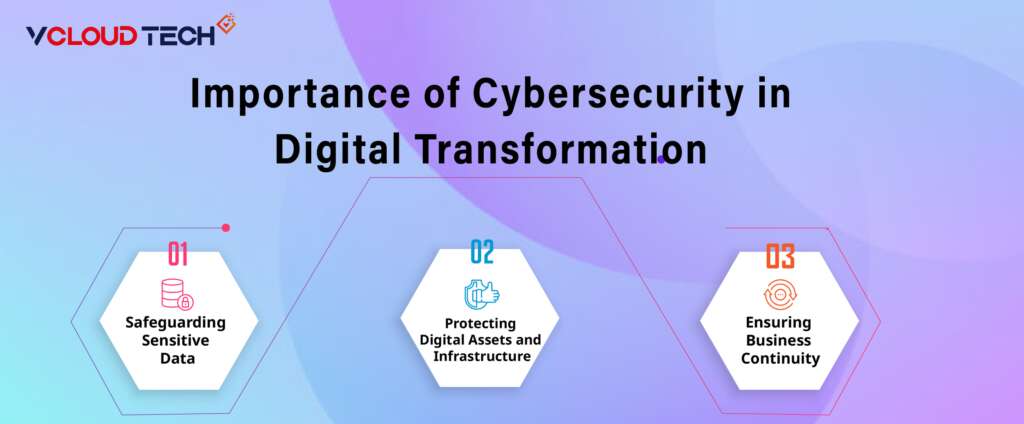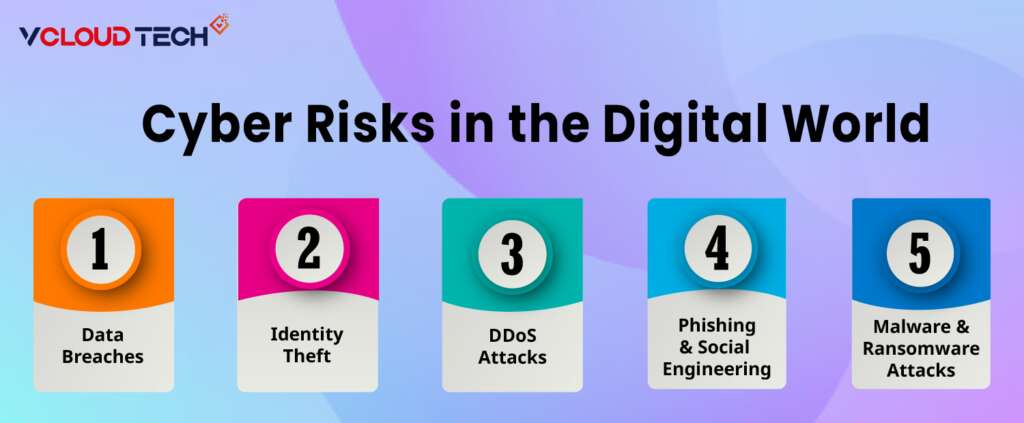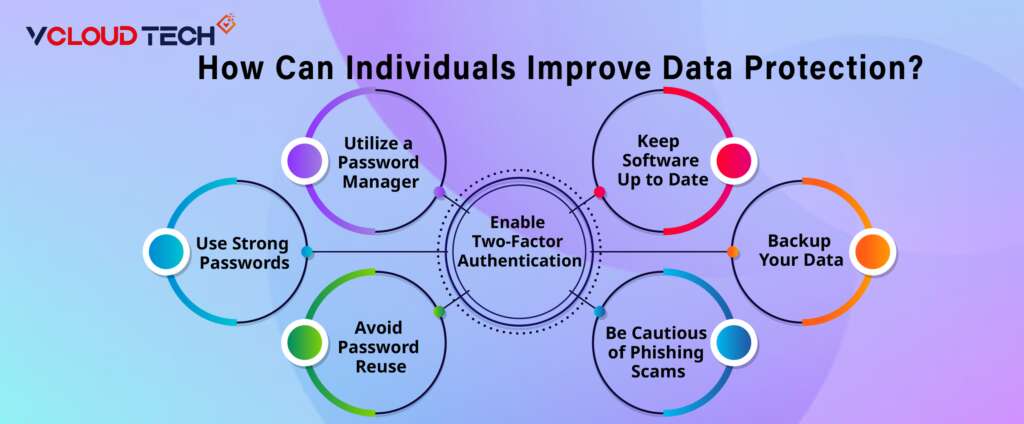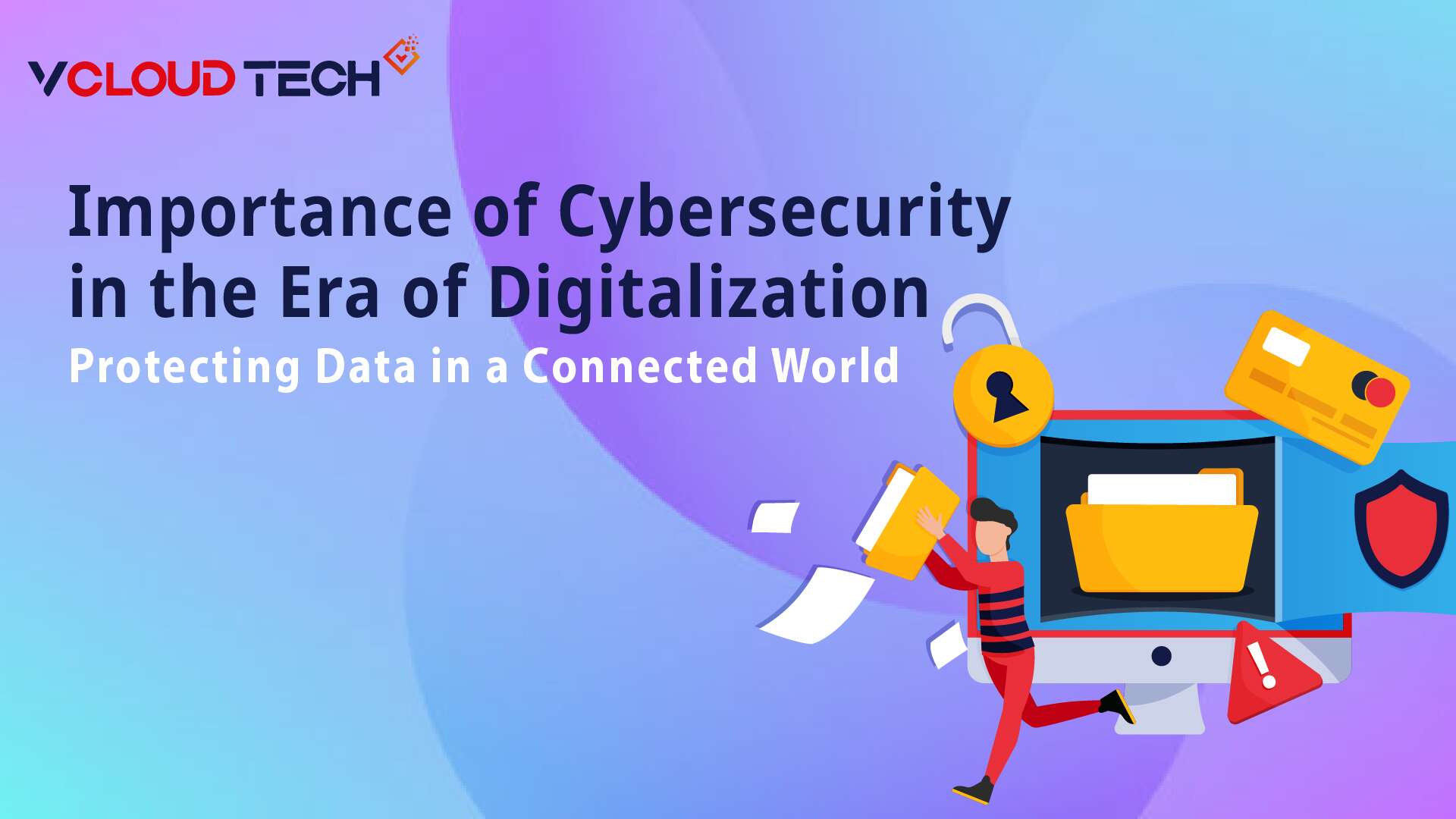Protecting Data in a Connected World
In today’s fast-paced and interconnected world, digitalization has become an integral part of our lives. The advancements in technology and the widespread use of the internet have revolutionized how we conduct business, communicate, and access information. However, with these conveniences come significant risks, making cybersecurity more important than ever before. In this article, we will explore the importance of cybersecurity in the era of digitalization and discuss ways to protect data in a connected world.
What is Cyber Security?
Cybersecurity refers to the measures taken to safeguard electronic data by addressing risks and vulnerabilities. These risks may involve unauthorized access, usage, disclosure, interception, or destruction of information.
The significance of cybersecurity in the digital realm is tremendous, given the continual rise in both the scale and complexity of cyberattacks. As our reliance on technology expands, so does our susceptibility to such threats. Cybersecurity plays a crucial role in shielding our data and systems from these potential dangers.
Understanding Digitalization
Here is the one question which blows in everyone’s mind: What is Digitalization? Digitalization is the process of transforming analog information into digital form, making it easily accessible, shareable, and manipulable. It involves the use of various digital technologies and tools to streamline processes, improve efficiency, and enhance user experiences. From personal communication to business operations, digitalization has revolutionized the way we interact, conduct activities and Modernize Workplace.
The Significance of Cybersecurity
The significance of Cybersecurity in the digital world cannot be overstated. A single breach in security can have extensive ramifications in today’s interconnected society. For instance, the Equifax breach in 2017 exposed the personal information of over 145 million individuals, while the Marriott breach in 2018 compromised the personal data of more than 500 million people.
These breaches inflicted substantial financial repercussions on the affected companies and eroded customer trust. Thus, cybersecurity is indispensable for safeguarding Digital Businesses and individuals from the potentially devastating consequences of a security breach.
To grasp the importance of acquiring knowledge about cybersecurity, it is crucial to understand how a robust cybersecurity system assists and protects students, businesses, organizations, and the banking sector.
With the increasing reliance on digital platforms, the significance of cybersecurity cannot be overstated. Cybersecurity encompasses measures and practices designed to protect digital systems, networks, and data from unauthorized access, damage, or theft. It ensures the confidentiality, integrity, and availability of information in a digital environment.
Importance of Cyber security in Digital Transformation
In the era of Digital Transformation, cybersecurity plays a vital role in safeguarding sensitive data, protecting digital assets and infrastructure, and ensuring business continuity.

Safeguarding Sensitive Data:
With the digitization of personal and Financial Information, protecting sensitive data is crucial. Cybersecurity measures such as encryption, access controls, and secure communication protocols help prevent unauthorized access and data breaches.
Protecting Digital Assets and Infrastructure:
Organizations rely heavily on digital assets and infrastructure for their operations. Cybersecurity measures like firewalls, Intrusion Prevention System, and regular vulnerability assessments help protect these assets from cyber threats.
Ensuring Business Continuity:
Cyberattacks and data breaches can disrupt operations, leading to financial loss and damage to an organization’s reputation. Robust cybersecurity measures minimize the impact of such incidents, ensuring business continuity even in the face of cyber threats.
Most Prevalent Cyberattacks
In recent years, numerous high-profile cyber attacks have inflicted severe consequences on businesses and individuals. These attacks primarily involve the theft of social security numbers, bank account details, credit card information, and the leakage of sensitive data. The primary reason behind such occurrences is that many individuals store their data on cloud storage services like Dropbox or Google Drive. These incidents underscore the significance of implementing robust cybersecurity measures. Some of the most common cyberattacks include:
Phishing Attacks
Phishing is a type of cyberattack that deceives users into clicking on malicious links or attachments. It aims to steal sensitive information such as login credentials or financial data.
Malware Attacks
Malware refers to malicious software that can infiltrate computers and devices, enabling the theft of information, device hijacking, or launching attacks on other systems.
Denial-of-Service Attacks
Denial-of-service attacks disrupt users’ access to a system or service by overwhelming it with excessive traffic or requests, rendering it unable to function properly.
Ransomware Attacks
Ransomware is a type of malware that encrypts files or systems, demanding a ransom to decrypt them. It can result in data loss or complete system shutdown.
Man-in-the-middle (MitM) Attacks
MitM attacks involve an attacker intercepting communications between two parties, either by eavesdropping on network connections or redirecting traffic to a malicious server.
SQL Injection
SQL injection attacks exploit vulnerabilities in web applications to inject malicious SQL code into the database. This code can manipulate or retrieve data, gain control over the server, or perform other malicious activities.
Cybersecurity is crucial as it shields us from these and various other threats. By being aware of the risks and implementing measures to mitigate them, we can safeguard our data and systems. Let’s explore the necessity of cybersecurity in our increasingly digitized world.
Risks in the Digital World
As we embrace digitalization, we expose ourselves to various digital security risks. These risks can have severe consequences for individuals, businesses, and even governments. Common Digital Security Risks include:
Phishing and Social Engineering:
Cybercriminals use deceptive tactics to trick individuals into revealing sensitive information such as passwords, credit card details, or personal data.
Malware and Ransomware Attacks:
Malicious software can infect computers and networks, leading to data breaches, unauthorized access, or encryption of files for ransom.

Data Breaches:
Unauthorized access to sensitive information can result in financial loss, reputational damage, and compromised privacy for individuals and organizations.
Identity Theft:
Cybercriminals steal personal information to assume someone’s identity, commit fraud, or engage in other criminal activities.
Distributed Denial of Service (DDoS) Attacks:
These attacks overwhelm a system or network with a flood of traffic, causing disruptions and rendering services unavailable.
The Need for Cybersecurity Measures in Digitalization
To mitigate the risks associated with digitalization, robust cybersecurity measures are essential. By implementing effective cybersecurity practices, organizations and individuals can protect their digital assets and ensure a safe digital environment.
The Role of Cybersecurity in Today’s World
In today’s ever-evolving digital landscape, cybersecurity has become increasingly important. With the rise of sophisticated cyber threats and the interconnectedness of systems, organizations must prioritize cybersecurity to protect their data and systems effectively.
Digital Security includes various components such as:
As the volume and complexity of cyber-attacks increase, the importance of cybersecurity also grows. Cybersecurity is crucial in protecting organizations and individuals from these attacks. It helps prevent data breaches, identity theft, and various types of cybercrime. Organizations must implement robust cybersecurity measures to safeguard their data and customers.
Technology Innovation
Cybersecurity plays a vital role in technology innovation by protecting ideas and intellectual property from theft or unauthorized duplication. This is crucial for companies to maintain a competitive advantage and ensure the safety of their products and services against competitors. Additionally, it ensures that new products and services are not easily replicated or stolen before they can be introduced to the market.
Cloud Transformation
The adoption of cloud technology has transformed the IT landscape but has also introduced new security risks. As organizations increasingly migrate critical data and applications to the cloud, they need to stay informed about the latest cybersecurity threats and know how to protect themselves.
One of the significant advantages of Cloud Computing is its ability to enhance agility and responsiveness to change. However, this flexibility can also bring forth new security risks. For instance, a cloud provider may not have the same security controls as a traditional on-premises data center. Moreover, cloud data is often distributed across multiple physical locations, making its protection more challenging.
Organizations must be aware of these new risks and take steps to mitigate them. Collaboration with cloud providers is crucial to ensure the implementation of adequate Digital Security controls. Additionally, considering the use of a Cloud Security platform can assist in managing and monitoring the cloud environment effectively.
Impact on Business Operations
The internet has become a fundamental component of business operations for the majority of companies worldwide as providing many Business Applications. The surge in internet usage has led to an increase in cyber-attacks, which can have a significant impact on business operations. Implementing cybersecurity measures in business helps protect against these attacks, including data breaches, phishing scams, and ransomware. Cybersecurity ensures the protection of data, customers, and reputation for businesses.
Maintaining Customer and Employee Trust
Customers and employees trust that their information will be safeguarded from cyber threats. To maintain this trust, businesses must invest in cybersecurity measures to protect customer and employee data to Optimize workplace. This may involve the installation of firewalls, data encryption, and the creation of secure passwords. By taking these steps, businesses can demonstrate their commitment to protecting customer and employee information, which ultimately helps build and maintain trust.
Securing the Financial Position of the Organization
The importance of cybersecurity in securing an organization’s financial position cannot be overstated. In today’s interconnected world, where sensitive data is often stored digitally, a security breach can have disastrous consequences. It can lead to the loss of critical data, damage an organization’s reputation, and negatively impact its bottom line. A cyber-attack can result in the loss of customer confidence, increased costs, and a decline in stock value. In severe cases, it can even lead to bankruptcy. Hence, organizations need to take proactive measures to protect their data and systems from cyber-attacks. This includes investing in cybersecurity measures such as firewalls, intrusion detection systems, and encryption.
Maintaining Strength Amidst Competition
Cybersecurity is crucial for gaining a competitive advantage as it protects businesses and organizations from cyber-attacks. By investing in cybersecurity, businesses can enhance their security posture, making it more challenging for attackers to breach their systems. Consequently, this can provide them with an edge over competitors that have not prioritized cybersecurity. Furthermore, businesses that have experienced cyber-attacks can leverage their knowledge to develop better defenses against future attacks and share their expertise with other companies to improve overall cybersecurity.
Avoiding Fines and Penalties
Cybersecurity plays a critical role in avoiding fines and penalties by protecting businesses and individuals from data breaches, cyber attacks, and other online threats. By implementing robust cybersecurity measures, companies and individuals can safeguard their data and mitigate the risk of potential fines and penalties.
Preserving the Organization’s Ability to Function
Organizations face various risks that can hinder their ability to function effectively, and cyber attacks are among the most significant threats. Cybersecurity is vital in protecting organizations from these attacks.
Cyber attacks can have numerous adverse consequences for an organization, including the loss of important data, operational disruptions, financial losses, and even endangering people’s lives in certain cases. Therefore, organizations require robust cybersecurity measures to safeguard themselves against these risks.
Having a well-defined incident response plan is a critical aspect of cybersecurity. This plan outlines the necessary steps to be taken in the event of a cyber-attack, enabling organizations to respond quickly and effectively. Employee training is another essential component of cybersecurity. Employees should receive training on how to identify potential cyber threats and how to respond if they encounter one. This training can significantly reduce the likelihood of a successful cyber-attack.
Overall, cybersecurity is of utmost importance in protecting organizations from the multitude of risks they face. By implementing strong cybersecurity measures, organizations can decrease the likelihood of successful attacks and minimize the potential damage caused by such attacks.
How to Protect Your Organization Against Cybercrime in the Digital World?
To protect your organization against cybercrime, it is essential to implement various precautions. First and foremost, establish a robust cybersecurity policy that includes measures such as data encryption, firewalls, and intrusion detection systems.
Furthermore, ensure that your employees receive proper training to identify and report potential cyber threats effectively. Regularly monitoring your network for suspicious activity is also crucial. By taking these steps, you can significantly reduce the risk of your organization falling victim to cybercrime.
How Can Individuals Improve Data Protection?
There are several reasons why individuals should prioritize protecting their data. Unauthorized access to personal data can lead to identity theft, fraud, and other criminal activities. Moreover, the loss or destruction of unprotected data can result in significant inconvenience and financial hardship. Here are some ways individuals can enhance their data protection practices:

Use Strong Passwords:
Create passwords that are at least eight characters long and include a combination of uppercase and lowercase letters, numbers, and symbols. Avoid using easily guessable information like your name or birthdate.
Utilize a Password Manager:
A password manager can help you securely store and generate strong passwords for different online accounts.
Avoid Password Reuse:
Using the same password across multiple accounts increases the risk of a security breach. It is advisable to use unique passwords for each account.
Keep Software Up to Date:
Regularly update your software, including operating systems, applications, and antivirus programs. Software updates often include essential security patches that protect against known vulnerabilities.
Enable Two-Factor Authentication:
Activate two-factor authentication whenever possible. This adds an extra layer of security by requiring you to provide an additional code from your phone or email along with your password.
Be Cautious of Phishing Scams:
Exercise caution when encountering emails or websites that may be phishing scams. Be wary of providing personal information or clicking on suspicious links. Verify the legitimacy of requests before taking any action.
Backup Your Data:
Regularly backup your important data to an external storage device or a cloud-based backup service. This ensures that you can still access your data even if your computer is lost, stolen, or compromised.
By implementing these data protection measures, individuals can significantly enhance their online security and reduce the risk of falling victim to cyber threats.
Conclusion
As digitalization continues to reshape our world, the importance of cybersecurity cannot be overstated. Safeguarding data, protecting digital assets, and mitigating cyber risks are paramount for individuals and organizations alike. By embracing robust cybersecurity measures and staying informed about the evolving threat landscape, we can navigate the digital era securely and confidently.
FAQs:
What is Cybersecurity in the Era of Digitalization?
Cybersecurity in the era of digitalization refers to the practices, technologies, and measures implemented to protect computer systems, networks, and data from unauthorized access, cyber threats, and cyber attacks. With the increasing reliance on digital technologies and the interconnectedness of devices and systems, cybersecurity plays a crucial role in safeguarding sensitive information and ensuring the integrity, confidentiality, and availability of digital assets.
What is the Impact of Digitalization on Cybersecurity?
Digitalization has had a significant impact on cybersecurity. While digitalization has brought about numerous advancements and opportunities, it has also created new vulnerabilities and risks. The increased connectivity and digitization of various aspects of life have expanded the attack surface for cybercriminals. Cybersecurity threats have become more sophisticated and diverse, including malware, ransomware, data breaches, phishing attacks, and more.
What is the Importance of a Digital Security System?
A digital security system is essential for protecting sensitive data, preserving privacy, maintaining the trust of users, and ensuring the uninterrupted operation of digital systems and networks. It provides a layered defense against cyber threats, encompassing technologies, policies, procedures, and user awareness. A robust digital security system helps in detecting and preventing unauthorized access, identifying and mitigating vulnerabilities, and responding effectively to cyber incidents.
How are Digitalization and Cybersecurity related?
Digitalization and cybersecurity are closely intertwined. Digitalization refers to the process of integrating digital technologies into various aspects of society, economy, and governance. As more aspects of our lives become digitized, the need for effective cybersecurity measures becomes paramount. Digitalization increases the attack surface for cybercriminals, as more devices, systems, and networks become interconnected.
Why is Cybersecurity Important in today’s Digitally Connected World?
Cybersecurity is crucial in today’s digitally connected world due to several reasons. The increasing reliance on digital technologies for communication, commerce, and critical infrastructure means that any disruption or compromise of these systems can have severe consequences. Cyber attacks can lead to financial losses, data breaches, identity theft, and damage to reputation.
Reach out to us and book a Free Consultation with vCloud Tech or chat with one of our representatives. Connect with us on Twitter, Facebook, Instagram, and LinkedIn for more information.









